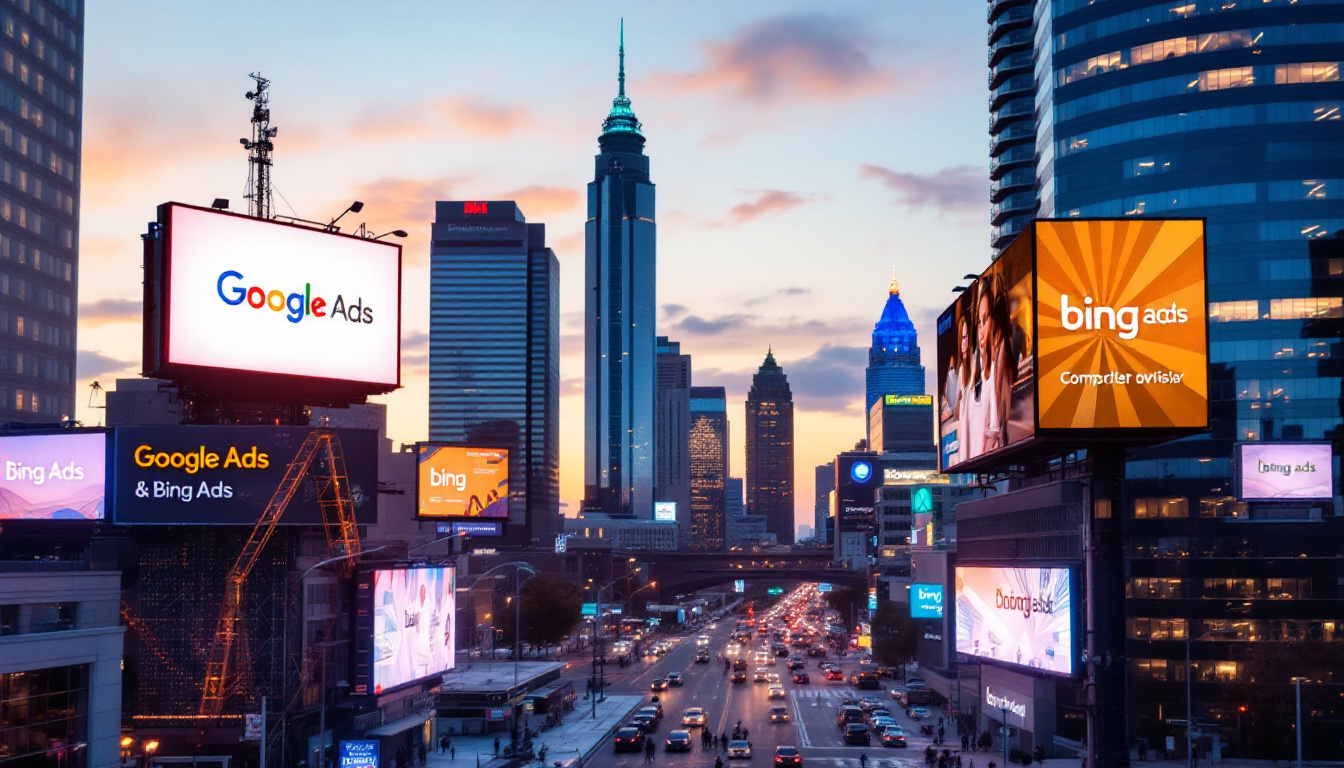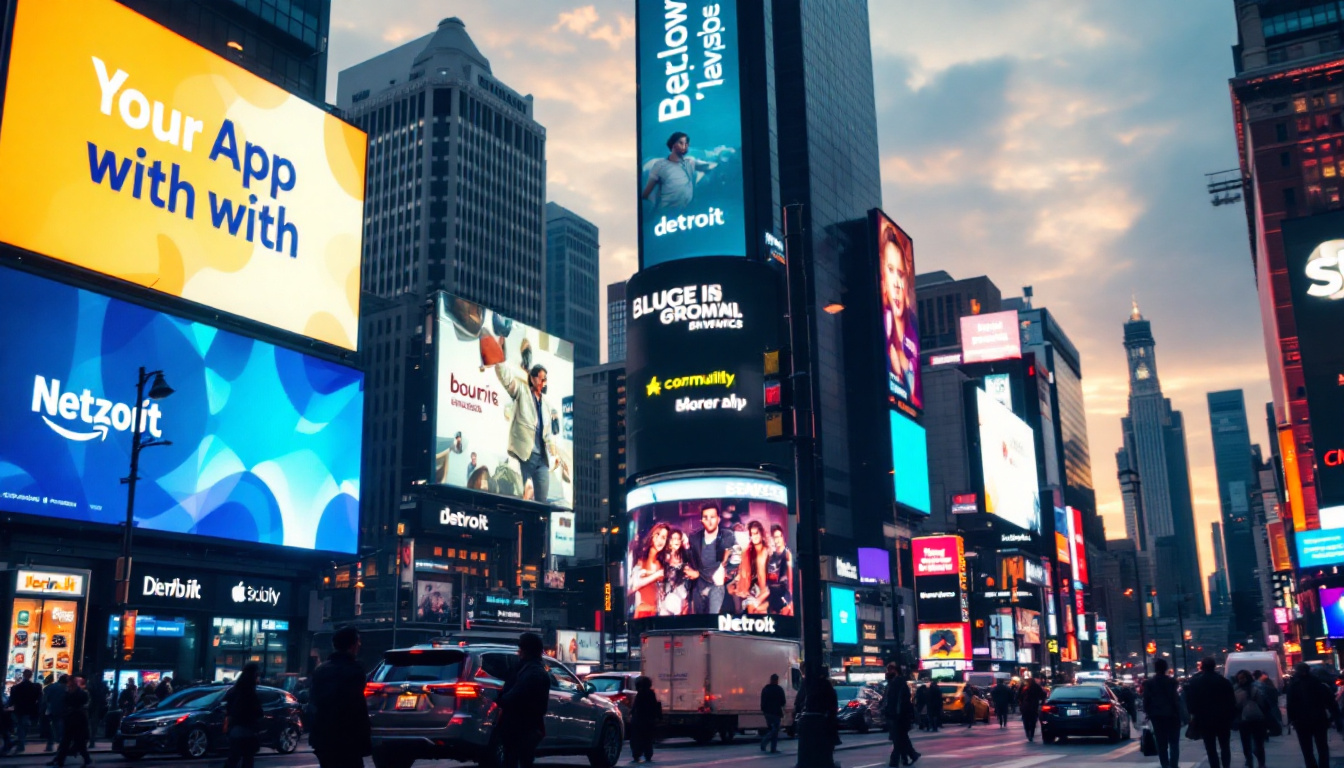Top PPC FAQs Answered for Detroit, MI Businesses

PPC, or pay-per-click advertising, has become a staple for businesses in Detroit and beyond. As companies strive to navigate the complex realm of online advertising, it's essential to untangle some of the most frequently asked questions regarding this powerful digital marketing strategy. In this article, we will address the top PPC FAQs to help Detroit businesses make informed decisions.
What is PPC and how does it work?
PPC stands for pay-per-click, which is a model of internet marketing where advertisers pay a fee each time their advertisement is clicked. Essentially, it’s a way of buying visits to your site rather than attempting to “earn” those visits organically. The most common platform for PPC is Google Ads, but there are various others, including Bing Ads and social media platforms.

The process behind PPC involves bidding on specific keywords that you think your target audience is searching for. Once a user searches for one of those keywords, the PPC auction process comes into play, determining which ads will show on the search engine results page (SERP) and in what order. The placement of your ad does not solely depend on the bid amount; Quality Score, which includes relevance and click-through rate, also plays a significant role.
Understanding the auction process
The auction process is essential in determining the visibility of your ads. Advertisers enter bids for keywords, and when someone searches for those keywords, the search engine evaluates the advertisers’ maximum bid alongside their Quality Score. This evaluation leads to the Ad Rank of each ad, which ultimately decides its placement.
It's important to note that just because you bid the most doesn't guarantee a top position. Google emphasizes high-quality ads that provide value to users, making PPC an engaging blend of both strategy and quality content. Advertisers must continually optimize their campaigns, refining their keywords, ad copy, and landing pages to improve their Quality Score and overall performance. This ongoing process often involves A/B testing different ad variations to see which resonates best with the target audience, allowing for data-driven decisions that enhance effectiveness.
Moreover, PPC is not just limited to search engines. Social media platforms like Facebook, Instagram, and LinkedIn also offer PPC advertising options, allowing businesses to target users based on their interests, demographics, and behaviors. This capability enables advertisers to reach potential customers in a more personalized manner, increasing the chances of conversion. As digital marketing evolves, the integration of AI and machine learning into PPC strategies is becoming more prevalent, allowing for smarter bidding strategies and more precise targeting, ultimately leading to higher returns on investment.
Why is PPC important for local businesses?
PPC is particularly vital for local businesses for several reasons. First and foremost, it allows you to target specific geographical areas, making it easier to reach potential customers who are in close proximity to your establishment. Given the competition in local markets, leveraging PPC ensures that your business appears in the forefront when users conduct related searches.
Moreover, local PPC campaigns can drive targeted traffic to your website, increasing your chances of conversion. This targeted approach is beneficial for businesses that rely on foot traffic or local service inquiries, as it channels resources directly to the right audience. By utilizing geo-targeting features, businesses can refine their campaigns to reach users based on their current location, ensuring that marketing efforts are both efficient and effective.
Encouraging immediate results
Another reason why PPC is critical for local businesses is its ability to produce immediate results. Unlike SEO, which can take months to show significant outcomes, PPC guarantees visibility as soon as a campaign is launched. You can begin to see traffic and potential conversions virtually instantaneously, which is crucial for businesses looking to boost their revenue quickly. This immediacy allows businesses to test different ad copies and strategies in real-time, optimizing their campaigns based on performance data without the lengthy wait associated with organic search strategies.
Lastly, PPC can support brand exposure and visibility in search engines. When your business appears at the top of the SERPs, it can foster brand recognition even among users who do not click on your ad, creating a broader awareness of your identity within the local market. This is particularly important for local businesses that thrive on community engagement and word-of-mouth referrals, as increased visibility can lead to more conversations about your brand in social settings. Additionally, by utilizing ad extensions, such as location and call buttons, businesses can make it even easier for potential customers to connect with them, further enhancing the likelihood of in-person visits or inquiries.
How to select the best PPC platform?
Selecting the right PPC platform is crucial for maximizing your advertising investment. Some of the most popular options include Google Ads, Facebook Ads, Bing Ads, and LinkedIn Ads. Each platform has its own unique strengths, and the best one for you will depend on your business objectives, target audience, and budget.

When considering a PPC platform, start by identifying your target audience. For instance, if you're a B2B company, LinkedIn Ads may offer the best ROI due to its professional user base. On the other hand, if you're a consumer-focused business, Google and Facebook Ads can provide significant reach and engagement. Understanding the demographics, interests, and online behavior of your audience can significantly influence your choice of platform. For example, younger audiences may be more active on Instagram, while older demographics might prefer Facebook or even traditional search engines.
Evaluating features and capabilities
Additionally, evaluating the features each PPC platform offers can provide insights into what might work best for your company. Google Ads, for example, boasts extensive tools for tracking conversions, while Facebook provides robust options for audience targeting and retargeting. An understanding of the unique capabilities of each can help you align them with your advertising goals. Moreover, consider the types of ad formats available on each platform; for instance, video ads on Facebook or display ads on Google can enhance engagement and drive better results depending on your campaign strategy.
Furthermore, it's essential to take into account the level of competition within each platform. For instance, while Google Ads can yield high traffic, the cost-per-click (CPC) can be steep due to the competitive nature of keywords. Conversely, platforms like Bing may offer lower CPCs, making them a cost-effective alternative, especially for niche markets. Overall, the key is to assess not just where your audience is but also where you can get the most value for your spend based on the types of ads you intend to run. By carefully weighing these factors, you can make a more informed decision that aligns with your marketing strategy and budgetary constraints.
What are the costs associated with PPC?
The cost of PPC can vary significantly based on a variety of factors, including your industry, competition level, and chosen keywords. Commonly, PPC operates on a bidding model, which means the more competitive the keyword, the higher the cost per click (CPC) will be. In highly competitive sectors like legal or finance, CPC might extend from several dollars to over a hundred.
Moreover, budgeting for PPC includes more than just the CPC; advertisers should consider the overall campaign costs, which can encompass ad creation, landing page optimization, and ongoing management. It’s essential to establish a clear budget that defines your maximum daily or monthly spend to avoid overspending. Additionally, factors such as ad quality and relevance can influence costs, as platforms like Google Ads reward well-optimized ads with lower CPCs, making it crucial to invest time in crafting compelling ad copy and selecting appropriate keywords.
Predicting return on investment
An additional aspect of costs is the need to forecast your potential return on investment (ROI). To do this effectively, you'll want to monitor and analyze your ad performance consistently. By understanding what works best, you can allocate your budget in a way that maximizes your returns while keeping costs in check. This involves not only tracking clicks and conversions but also understanding the customer journey, from the initial click to the final purchase, which can provide deeper insights into the effectiveness of your PPC efforts.
Fortunately, many PPC platforms provide invaluable analytics tools that give insights into user behavior and conversions, thus helping businesses evaluate what components of their campaigns need tweaking. Beyond basic metrics, advanced tracking can reveal the lifetime value of customers acquired through PPC, allowing businesses to make informed decisions about how much they are willing to invest in acquiring new customers. Additionally, A/B testing different ad variations and landing pages can further refine your approach, ensuring that every dollar spent is working as hard as possible to drive conversions and enhance overall profitability.
How to measure the success of your PPC campaigns?
Measuring the success of your PPC campaigns is essential for optimizing your advertising strategy. To start, invert your expectations and focus on crucial metrics rather than purely the ad clicks. Common performance indicators include conversion rate, click-through rate (CTR), and cost per acquisition (CPA).
Conversion rate represents the percentage of ad clicks that result in an action aligned with your goals, which could be making a purchase, filling out a form, or calling your business. Similarly, CTR helps gauge how compelling your ad is to potential customers. If your CTR is low, consider revising your ad copy or targeting strategy.
Utilizing analytics tools
Another critical part of measuring success involves utilizing tools such as Google Analytics. By linking your PPC campaigns with web analytics, you can maintain valuable insights into customer behavior post-click. This data empowers you to refine targeting and improve ad performance, ultimately leading to better returns.
In conclusion, PPC advertising presents an opportunity for Detroit businesses to compete effectively in their market. Understanding the basics of PPC, its cost implications, and how to measure and optimize performance can provide your business with the tools to thrive in the competitive landscape of digital marketing.

As a Google Ads expert, I bring proven expertise in optimizing advertising campaigns to maximize ROI.
I specialize in sharing advanced strategies and targeted tips to refine Google Ads campaign management.
Committed to staying ahead of the latest trends and algorithms, I ensure that my clients receive cutting-edge solutions.
My passion for digital marketing and my ability to interpret data for strategic insights enable me to offer high-level consulting that aims to exceed expectations.






















